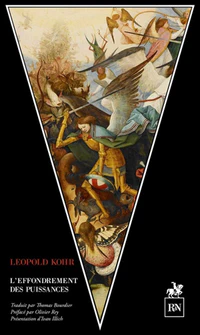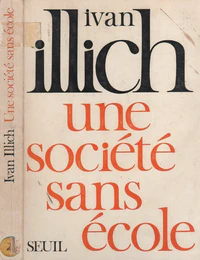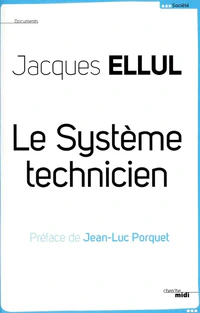What a strange era. Or perhaps sad rather, so much does the absence of dreams, projections, ideals haunt us. Few positive signals are sent our way. The planet, like social progress, is gradually disintegrating, almost everywhere. We no longer see companies that inspire desire. They are either mired in senseless procedures and processes with no future other than the status quo. Or driven by desires for dehumanized ultra-technology: AI, social networks, and so on. All of it orchestrated and compartmentalized by the propaganda and enslavement of the great corporations of the anti-web. We don’t think about creating. We only think about producing to accumulate. Everything has become gray.
When I try to limit (really very little, too little) my youngest son’s video game sessions, telling him he’s not living in the real world, he retorts, at almost 12 years old, “Gaza, Ukraine, Trump, leave me in my world of fiction”. And he may well be right. I console myself by saying I lived in the era of Robert Johnson, Led Zeppelin, and the invention of the electric guitar.
I’m looking for what positive things could happen. I’m searching for paths of renewal. And unsurprisingly, this renewal has already been proposed for years in the old. As always, the most difficult thing isn’t knowing what should be done, but getting there. Moving from point A to point B. Moving, not being frozen by the headlights of the car rushing toward us.
What do I find in the old? I’m at the beginning of a new journey (of thought). It currently feeds on three sources.
Small is beautiful, threshold effects
Here I’m talking about Leopold Kohr, and his book The Breakdown of Nations. His idea is simple, but powerful. You know Leopold Kohr or at least the expression he coined “small is beautiful”. In his view, everything comes from a threshold effect: from a certain point, we are too powerful, or too rich, or too something. We cross a threshold and either we lose our purpose, or rather the side effects become more important, more impactful, than our original purpose. Or we are led to trigger harmful actions, wars for example. Harmful to humanity, to the future. In this sense, a small war between two small states is not harmful (even if painful) because it’s limited to two small states, which will quickly cease fighting. Nothing like wars of omnipotent states. And you can apply this idea of the harmfulness of size to companies, or anything else.

What if it were enough to limit the size of things to avoid these tipping points or these side effects, to avoid these large-scale harms? AI in medicine for detecting weak signals is wonderful. AI everywhere is a nightmare. Companies that offer us online services are useful. Three mega-companies that govern all online services is a nightmare (where did the American antitrust law go?).
Getting everyone to agree in a large group to make a decision, or imposing the same decision on everyone, is mind-boggling. Letting small groups try things and observing to take what comes out well is useful.
Can we today accept hearing that we should limit the size of our companies, that our companies are only interesting at a certain size? Should we learn from regionalism, federalism, city-states?
How can we today split large entities (intelligently! Not like companies that are carved up in totally absurd ways to avoid anti-competitive questions as I see in energy or transportation currently) to return to a human scale (with its share of humanity)?
Who today would have this courage? The courage to split. The courage not to grow.
No indoctrination and uniformization
Very related to this, there is also Ivan Illich and his prophetic pamphlets, for example “Deschooling Society”. Outright, a society without school, when Illich decides to overturn the table where it hurts most, the sacrosanct school. School is inherently good: we learn, we educate, we grow, right? Illich shows us precisely that the system has become so centralized, unique, it shapes us so much that on one hand: it excludes with much pain those who are not in the system. A factory of exclusion, or grading: according to the level of study. A classification, which we know to be artificial, of everyone.
 And the system turns away from its purpose: we no longer seek to learn, we seek to succeed in our academic curriculum, nothing to do with it. Succeeding in one’s academic curriculum is not learning. The system ostracizes: it’s at school that one is supposed to learn, not elsewhere, not differently.
And the system turns away from its purpose: we no longer seek to learn, we seek to succeed in our academic curriculum, nothing to do with it. Succeeding in one’s academic curriculum is not learning. The system ostracizes: it’s at school that one is supposed to learn, not elsewhere, not differently.
School or otherwise, his point is indoctrination, uniformization, and again threshold effects that divert from original objectives.
Both arguments converge: no gigantism, but a multitude. No uniformization, but a multitude. And the point is political: the workforce is identical if there is no multitude, and therefore easier to use. The consumer is identical if there is no multitude, and therefore easier to use. Etc.
Is it too late to try to dismantle the gigantic planetary system that tends toward uniqueness. No, it’s not too late. But it requires taking back control, each and every one of us, of our environments and our choices. Taking back control of our autonomy.
Autonomy and control of one’s environment
I arrive at my third point, Jacques Ellul, and his book “The Technological System”. They all intertwine and influence each other: Kohr, Illich, Ellul. There is uniformization, indoctrination, enslavement when there is loss of autonomy, when there is a loss of control of one’s environment. And linked to this, also a loss of commitment, desire, loss of meaning.

Why is every choice we make today regarding technology excited by the feat accomplished and not by the impact on our lives? I’m paraphrasing, but that’s the question. That was the role of traditions. There are many negative things in the word tradition. But there was the idea of measuring the impact on our lives of each new choice imposed, the rhythm to give things, the size to give things.
This video by Jacques Ellul illustrates the point much better than the words I could write: https://www.youtube.com/watch?v=01H5-s0bS-I
Today it’s about having the courage to refuse gigantism, uniformization (and perhaps centralism), systematization, the mechanical that only serve and facilitate things for those who want to rule the world. What serves us is autonomy, the ability to change things, to be responsible, to have meaning (and probably proximity).
Question yourself about what makes you lose this autonomy, this accountability, this capacity for action and fight it!